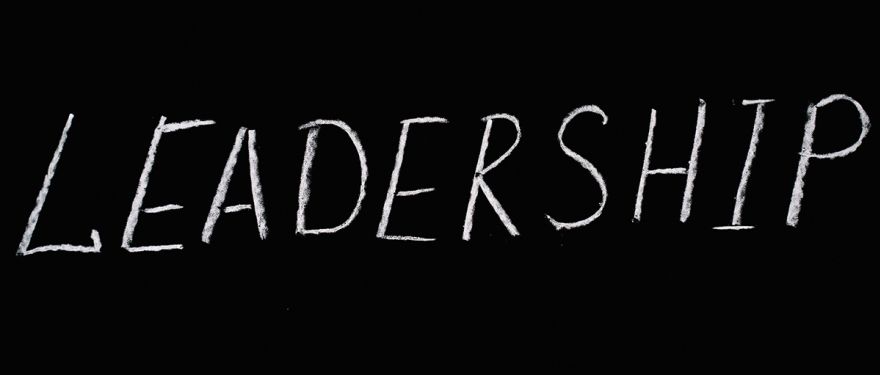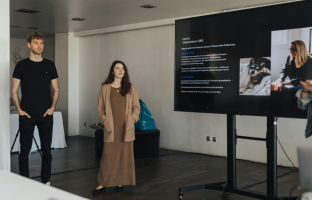"Three things in human life are important. The first is to be kind. The second is to be kind. And the third is to be kind." —Henry James
As a professor of business administration in the Organizational Behavior Unit at the Harvard Business School, I teach courses in leadership in the MBA and Executive Education programs. With the COVID-19 pandemic transforming our lives at every level, a growing number of students and former students have sought my advice about how to lead in a time of great uncertainty and unprecedented employee stress.
The stories these executives tell attest to the fact that these are the most difficult times in memory for many, if not most people. Parents struggle to balance the demands of remote work and homeschooling. Employees who live alone strain to stay focused while isolated from loved ones and traditional social supports. In between Zoom meetings, caretakers exhaust themselves attending to a special needs child or ailing parent. Everyone frets over their physical and financial well-being. Who among us isn't anxious, stressed out, and off our game right now?
From bolstering remote collaboration to scheduling meetings upon meetings, the business press and bloggers are buzzing with guidance about ways to sustain employee engagement and productivity in the chaos of a pandemic. Unfortunately, most Management 101 advice does not recognize that in times like these, the manager's toolkit must expand in ways we haven’t seen before.
I believe that a powerful, fundamental leadership strategy is being largely overlooked. It is, in fact, the most innately human one: Be kind.
According to a recent Gallup survey, less than half of employees (45 percent) feel strongly that their employer cares about their well-being. Many realize that this needs to change. Practicing active, habitual kindness can transform the remote workplace and it can start today. A little reassurance, compassionate listening, a conscious effort to validate people's fear and confusion all go a long way.
Employees and managers alike face unprecedented obstacles every day. In March and early April, as COVID-19 spread worldwide, a study by Mind Share Partners in partnership with Qualtrics and SAP found that 42 percent of respondents said their mental health had declined since the outbreak. Six months later, people's anxiety, confusion, and despair are topics of near-daily reports in the news and on social media. Even if gestures of kindness and compassion were not woven into business as usual before the pandemic, they are essential now and going forward.
Unfortunately, the notion of kindness in the form of the simplest words and gestures often gets lost when CEOs and managers are in perpetual crisis management mode, struggling with layoffs, remote work technology, market woes, and a range of other frustrating disruptions.
While confronting these challenges requires time and unique skill sets, kindness does not. The value and rewards of kindness have been touted by leaders as legendary as King Solomon and Desmond Tutu to latter-day executives like General Motors CEO Mary Barra, known for her inclusive, employee-centric style.
Kindness is teachable. Ritchie Davidson of the University of Wisconsin has compared practicing kindness and compassion to weight training: "People can actually build up their compassion 'muscle' and respond to others' suffering with care and a desire to help," he said. Great leaders attest that it is not a sign of weakness or relinquishing authority to be consistently kind and to offer encouragement and show genuine interest in employees' mental well-being in punishing times. New Zealand Prime Minister Jacinda Ardern, at once forceful and compassionate, remarked that one of the criticisms she's faced over the years is that "I'm not aggressive enough or assertive enough, or maybe somehow, because I'm empathetic, it means I'm weak. I totally rebel against that. I refuse to believe that you cannot be both compassionate and strong."
We've seen how stress can alter behavior. It's jarring for managers to see normally calm, high-functioning employees show signs of confusion and burnout. Teams are failing to meet deadlines and executives tell me they see an increase in petty conflicts and a parallel pandemic of short tempers, exposed nerves, and increased sensitivity to perceived slights.
It's important to remember that kindness is contagious as well as calming. And it is healing: the Mayo Clinic urges us to "intentionally set a goal to be kinder to others. Express sincerely felt kindness to a co-worker." Science has confirmed what we observe in our daily interactions. According to the Mayo Clinic, acts of kindness activate the part of our brain that makes us feel pleasure and “releases a hormone called oxytocin that helps modulate social interactions and emotion. Being kind is good for our own and our employees' mental health." And that translates to improved morale and performance.
Here's what Psychology Today had to say about kind bosses: "They have been shown to increase morale, decrease absenteeism and retain employees longer. Kind bosses may even prolong the lives of their employees by decreasing their stress levels which improves cardiovascular health."
"Be kind, for everyone you meet is fighting a hard battle." —Philo of Alexandria
The pandemic is not a time for a stern, iron-fisted approach to leadership and management. The virus's vast fallout demands a kinder, gentler approach. What can CEOs and managers do to infuse their leadership with kindness and empathy? Here are straightforward, effective ways to practice kindness as a matter of course:
"I hear you." Really listen. Be fully present and don't judge. Encourage employees' questions and concerns. Listen actively—no side glances at the phone. "When someone shares that they're struggling, you won't always know what to say or do," write Kelly Greenwood and Natasha Krol in Harvard Business Review. "What's most important is to make space to hear how your team members are truly doing and to be compassionate. They may not want to share much detail, which is completely fine. Knowing that they can is what matters."
"Are you okay?" Show a willingness to provide comfort and monitor for signs of distress such as social withdrawal and poor performance. Know when to refer an employee to professionals, suggest Lesley Hammer and Lindsey Alley in The Conversation.
"What can we do to help?" It may be as simple as validating an employee's personal challenges during the pandemic. But being kind might also involve taking an active role in offering mental health resources or creating a virtual support group or sounding board.
"How are you managing these days?" According to the MIT Sloan Management Review, “some companies are creating deeper insights into the specific situations their workforces face by surveying home workers.” What they’ve found is that being single and working under quarantine alone carries a very different set of stresses than being a member of a working family with young children. For employees experiencing the pangs of social isolation, one company launched daily virtual coffee breaks. For those working while caring for children, leaders must be sensitive to issues of exhaustion and the difficulty of working during pre-pandemic office hours. "Leadership signaling that working unorthodox hours is okay could make a real difference to their stress levels," according to the article.
"I'm here for you." Let your employees know routinely that you are there for them when they need to share concerns or simply require a sympathetic, nonjudgmental ear. Consider making yourself available at times outside work hours; these are not normal times.
"I know you're doing the best you can." This statement is, with few exceptions, true. In scores of first-person accounts and on social media, people are reporting they are working harder than they did pre-COVID. This makes perfect sense; as layoffs and furloughs skyrocket, employees live in fear of losing their jobs. In times of crisis, bosses must alter their expectations. As Bryce Covert wrote in a New York Times op-ed, "Keeping output steady while maintaining our physical and mental health just cannot be done. We have to work less, and employers have to get on board." Public schools are closed in a majority of states, most child care services have ceased operations, and a majority of couples with school-age children both have jobs. "These working parents are logging on after the kids are asleep and answering emails before they wake. Bosses must acknowledge how incredibly hard this has been." But as Covert noted, "far too often, employers are acting as if little has changed. Their employees are responding to their expectations by working themselves even harder. Enough."
"Thank you." Say it with sincerity and say it often.
Along with empathy and emotional intelligence, kindness is one of the most essential soft skills for good leadership. But in these times, it might be the most crucial one. To paraphrase Henry David Thoreau, kindness is an investment that never fails.
ABOUT THE AUTHORS
Boris Groysberg is the Richard P. Chapman Professor of Business Administration at Harvard Business School. Susan Seligson, an independent researcher, contributed to this article.
This article originally appeared in HBS Working Knowledge.
[Image: Disability:IN]







